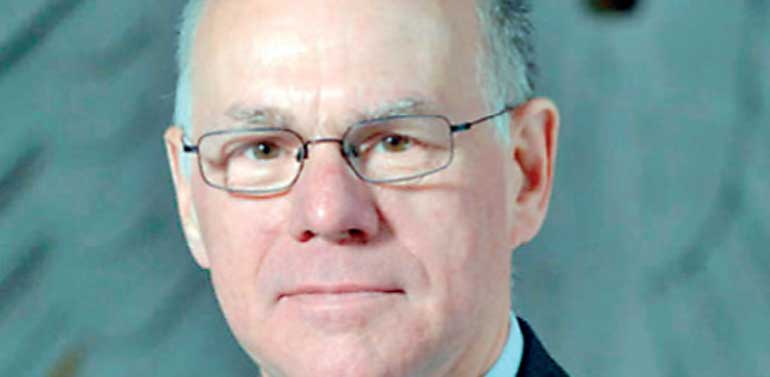Monday Feb 23, 2026
Monday Feb 23, 2026
Monday, 3 April 2017 01:04 - - {{hitsCtrl.values.hits}}

German Parliament Speaker Prof. Dr. Norbert Lammert
Sri Lanka this week will come under Germany’s spotlight with the latter selecting Colombo for two key regional meetings while also seeing its Speaker of Parliament visiting the country.
Following the official visit of President Maithripala Sirisena to Germany in February 2016 and visits by numerous business and parliamentary delegations from Germany to Sri Lanka last year, the upcoming events this week will again underline the growing intensity of German-Sri Lankan relations. Furthermore, bilateral trade is up 30% since 2014 with close to ¤ 1 billion recorded in 2016 and the opening of a German Chamber of Commerce office in Colombo imminent.
Prof. Dr. Norbert Lammert, one of the longest serving speakers of the German Parliament (Deutscher Bundestag) and a passionate parliamentarian, will, upon invitation by his Sri Lankan counterpart Karu Jayasuriya, visit Sri Lanka from 3-5 April. In the German order of precedence his office ranks second only to the Federal German President. Prof. Dr. Lammert has scheduled meetings with President Sirisena, Prime Minister Ranil Wickremesinghe and Opposition Leader R. Sampanthan as well as a broad spectrum of civil society representatives in order to learn about the latest developments on reconciliation issues as well as on the economic and democratic reform process in Sri Lanka.
In the afternoon of 4 April, Prof. Dr. Lammert will give a lecture at the Lakshman Kadirgamar Institute on ‘The Future of Liberal Democracy in International Relations’.
The Indian Ocean region is increasingly gaining focus as a new global centre of political and economic gravity. Sri Lanka’s geographic location and self-professed aim to become a hub in the region make it a central part of these developments. Around 40 German envoys from the Indian Ocean region, including most of the Heads of Missions, plus high-ranking Foreign Office officials, will gather in Colombo from 5-7 April to discuss political and security developments and economic trends in the region. On the second day German business leaders will join the debate. The German Embassy conveyed its appreciation of the assistance provided by the Sri Lankan Government in the organisation of this event.
On 5 April the conference will be opened jointly by Sri Lankan Foreign Minister Mangala Samaraweera and German State Secretary Dr. Markus Ederer. A panel discussion with Ministers from the Indian Ocean region will follow.
On 6 April the business day will be kicked off by Deputy Foreign Minister Dr. Harsha de Silva. Later on, Prime Minister Wickremesinghe it has been confirmed will speak to envoys and business leaders on Sri Lanka’s role in the region.
On 6 April bilateral consultations on foreign policy will take place at the Ministry of Foreign Affairs. All participants will take part in a tour of the Port of Colombo, underlining the ever-increasing importance of the ‘blue economy’ for Sri Lanka and the Indian Ocean region.
German political foundations have successfully engaged with various Government and civil society actors in Sri Lanka for decades until 2013, when the then Government restricted their activities. After the country’s political change, the new Government invited them to return and in 2015 the Friedrich Naumann Foundation (FNS) was the first to return.
From 3-5 April, the Konrad Adenauer Foundation (KAS) will host a seminar on ‘Leadership Training on Election Campaigning’ in Colombo with the participation of 20 young political leaders from the Asia-Pacific region as part of its flagship Konrad Adenauer School for Young Politicians (KASYP) program.